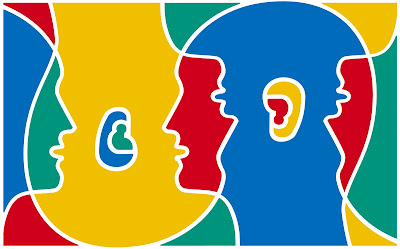Wat moet de taal met de geschiedenis van Wilde Westennen doen?
¿Qué la lengua tiene que hacer con historia del oeste salvaje?
On a typical day, I interact with three Dutch women and three Mexican men. Thus, the constant in my life is seemingly always language, or rather, my inability to understand it. Since the women were born and bred in Holland, and since the same goes for the men in Mexico, they speak with one another in their natural and native tongues. When exchanging with me, or with one of the other group, they jump to English. The results vary from very good communication to stone age sign language.
What the heck does language have to do with Wild West history? That's the question raised above in Dutch and Spanish. Maybe nothing. Maybe a lot. As one who has done his share of research into the Nineteenth-Century, I can vouch that I have never seen a totally accurate portrayal of those times. Almost always left out in any modern depiction of the Old West is the lack of homogeneity. Watch a typical TV Western or a John Wayne movie and one comes away with the impression that everyone more or less looked alike and everyone more or less spoke alike. Only occasionally is a Swedish, Italian or Irish accent heard, and these are always just sprinkled around and always obligatory, it seems.
Fact is, America in the 1800s was a Babel of languages and strong accents. A traveler crossing the continent back then would have been hard-pressed to move ten miles and not encounter ten languages spoken. Hard as it may be for modern Americans to understand, America was a far less homogeneous place back in the 'good ol' days,' than now. Indeed, could they come back and visit us today, I think our ancestors might be as much amazed by the loss of our linguistic variety as anything.
___________________________________________________
Strange Art of the Day

